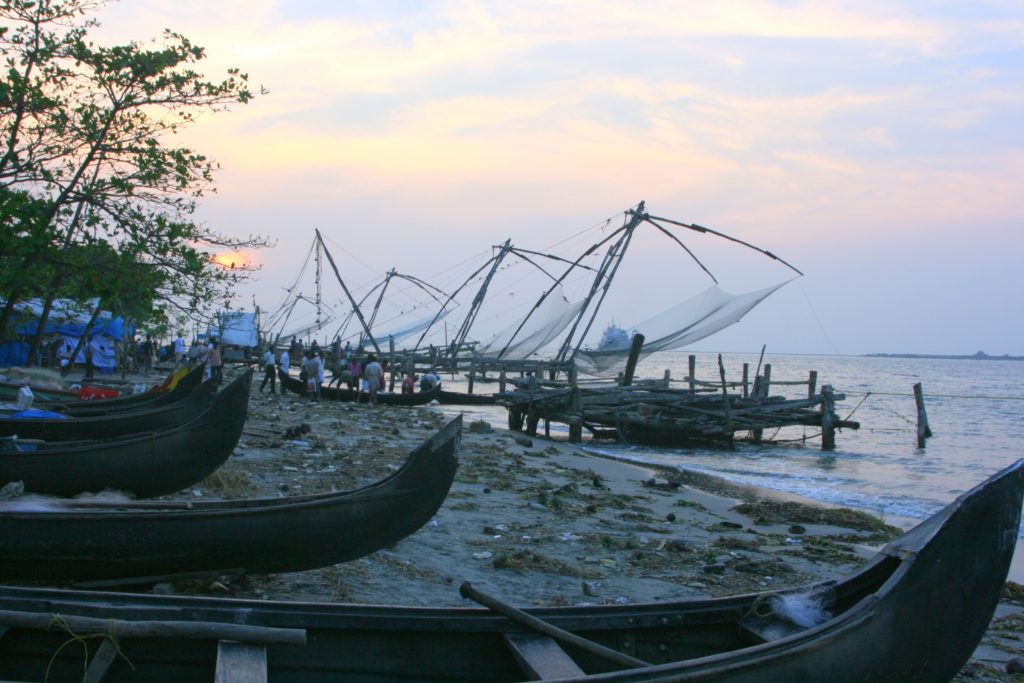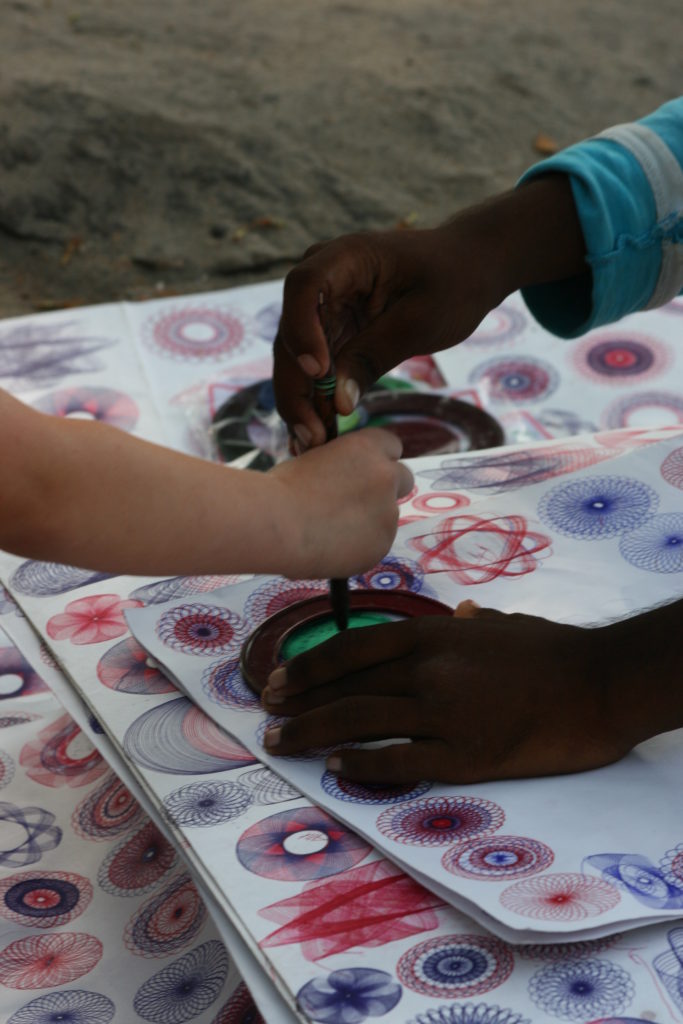 … and no idea what to do with her. It sounded like a good idea back in Sunnyvale when I agreed to the arrangement. She’s been the landlady’s housekeeper for an eternity or two, has even stayed with her in London for 4 years and sort of came with the house. Who am I to turn down the offer for help that comes at 300 Rupees per day, that is about $7.50, if that might support a person or more. So our new maid came this morning and I had to quickly run up the stairs and talk to the parents of the cousin of the landlady and ask them kind of sheepishly “what do I do now?” What kind of work can I ask her to do?”
… and no idea what to do with her. It sounded like a good idea back in Sunnyvale when I agreed to the arrangement. She’s been the landlady’s housekeeper for an eternity or two, has even stayed with her in London for 4 years and sort of came with the house. Who am I to turn down the offer for help that comes at 300 Rupees per day, that is about $7.50, if that might support a person or more. So our new maid came this morning and I had to quickly run up the stairs and talk to the parents of the cousin of the landlady and ask them kind of sheepishly “what do I do now?” What kind of work can I ask her to do?”
Roshni, as her name is, speaks just enough English to constantly misunderstand me and so I jumped head first into the first problem by asking her whether she will do shopping and she explained to me, sort of, that the building watchman does the shopping. You “just” give him the list and he will take care of it. As it turns out there was a little problem with this arrangement: the watchman does not speak or read English and my Mayalayam is still woefully inadequate.
Wanting to avoid another faux-pas like that seemed like a good idea. It so easy to get it wrong, here I am thinking that shopping is the cool part as opposed to washing the laundry (by hand, the washing machine was out) or sweeping the floors but that doesn’t seem to hold true here. We eventally settled the issue: she sweeped, washed some clothing, washed dishes, went shopping and prepared lunch for us. The laundry is done, we have enough food for another day or so – so what do ask my maid to do tomorrow? It might be hard for rich/privileged Indians when they move to the US to make due without a servant, maid, housekeeper, driver and gardener they are used to but it ain’t easy to get used to having them either, when you grew up strictly according to the motto: “wash your own damn dishes”.
Another thing that takes some getting used to – in fact I just might not get used to it at all – is the role, or lack thereof, I seem to play here as a woman. It does not amount to overt discrimination or sexism but its the small things that are harder to pin down that I am just not used to from either Europe nor the US. Like I ask somebody a question “Excuse me, where is the next ATM?” and the person will almost always direct their answer at Uli “Sir, if you just turn right there and take a rickshaw you’ll see one after 2 kilometers”. When we sit down to dinner in a restaurant Uli is almost always asked soemthing like “How are you today, Sir” I can’t remember that anyone ever inquired into my well-being so far, maybe Max’s but me – nope. Since I probably won’t change India or even Kerala within the next couple of weeks by making scenes I decide to just zip it and am trying not to get upset or offended. The advantage I derive is that I don’t have to ask directions anymore (normally Uli’s argument will be “you go ask for directions, you are so much better at it!” – fake smile). Now I just say: “No, you go because I won’t get an answer anyway so why bother!” (triumphant smile).
Kochi

fisher boats in Kochi
(c) Tina Baumgartner
Today we went into “Old Kochi” which involved the inevitable rickshaw ride and a ferry ride across some brown liquid that might, at some point, have been water. Kochi seems to have a reasonably busy port and so there were things to see along the way. Old Kochi is actually a very nice, fairly small, rather quiet town situated on the tip of a peninsula. It was nothing like I expected it to be but honestly, I have no idea were my preconceived notions came from. I read about Kochi in travel guides, read about the Fort etc and pictured in my minds eye narrow streets with huge, dark old buildings all very stern and such. In reality the streets are narrow and the buildings are old but they aren’t tall and so the whole thing has more the feeling of a pleasant small town somewhere in the countryside.
Kochi is geared heavily towards British and French tourists, which are out in force, with plenty of Internet Cafes, handicraft stores, beauty parlors (no men) and the ubiquitous Coke-chips-cookies-lottery tickets-lentils by the kilo (the latter two for the locals, I presume) stores. We looked at the famous Chinese fishing nets which are sort of neat but I won’t even try to explain how they look, just have a look at the pictures.

fisher boats in Kochi
(c) Tina Baumgartner

(c) Tina Baumgartner
The handicraft peddlers got a little out of control at some point because I actually, stupidly stopped, and bought something from one. They must have a secret system of letting the sellers of non-competitive products know that there is a willing victim. Anyway, I bought some stuff, it wasn’t expensive, not much harm done and somebody will be lucky enough to get a piece of silk with an elephant family painted on it as a souvenir. That might ruin a perfectly great friendship but there are always the not so favorite aunts that could be on the receiving end of this purchase. There was wonderful silk and beautiful saris – but truly, how many sarees does a non-Indian, even one living in Silicon Valley, really need. I am afraid the answer is one and I already have three and am planning on another visit to famous Jayalakshmi (Slogan: “Silk Saris, Embroidered Saris, Wedding Saris, Fancy Saris”) and the other fancy sari shop right next to it. If this pattern continues we’ll have to buy an apartment for me to decorate here. Uli, incidentally found out that a new three bedroom in a fancy high-rise can be had for just under $50K. But now, that’s just crazy talk ….
